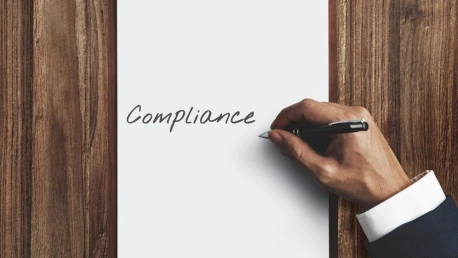Regulatory frameworks, especially in the U.S. with entities like the SEC, are increasingly highlighting the significance of companies in the financial sector self-reporting their activities. This evolution in compliance underscores the critical need for firms to maintain meticulous and transparent documentation, with a particular focus on communication records across various messaging platforms. Given the intensified scrutiny on such communication channels, it becomes imperative for these firms to ensure that their record-keeping practices are robust and clear. Such vigilance in documenting communication not only aids in meeting the regulatory requirements but also serves as a safeguard against potential violations. Adherence to these evolving standards is not just about compliance – it is a proactive measure that can significantly influence the trustworthiness and integrity of financial service providers.
The Compliance Expectations and Realities
The Four Pillars of Cooperation
The SEC’s advocacy for a transparent compliance culture is anchored in the four pillars of cooperation derived from the 2001 Seaboard Report. These pillars lay the foundation for a standardized approach to implementing compliance measures effectively. Firms that engage in active self-policing to ensure adherence to regulatory requirements, conduct self-reporting upon discovery of issues, take necessary remediation steps to address deficiencies, and provide full assistance to law enforcement display a commitment to the compliance ethos that the SEC encourages.Recognizing and seizing the measures outlined by the SEC are crucial for firms to enhance their credibility and receive potentially lenient consideration during enforcement assessments. By rigorously adhering to self-policing, self-reporting, remediation, and law enforcement assistance, companies signal their unwavering dedication to maintaining integrity within the financial markets—a posture the SEC greatly values.
Incentivization of Self-Reporting
Through its recent press releases, the SEC has made it clear that self-reporting is highly valued and can lead to more lenient outcomes during regulatory enforcement actions. This treatment provides a compelling incentive for firms to be forthcoming about compliance shortfalls. The SEC’s approach is designed to motivate companies to proactively address potential issues before they escalate by providing the carrot of reduced penalties for those that do self-report.The advantage of self-reporting can be substantial, as indicated by the penalties levied on firms that have chosen to voluntarily disclose their shortcomings, as opposed to those that have attempted to conceal or failed to disclose them. This contrasting end-result of enforcement actions underscores the tangible benefits of engaging with the SEC in a cooperative manner, a stance that firms are increasingly recognizing as integral to their ongoing operational strategy.
Understanding Self-Reporting in the Modern Compliance Era
The Misconceptions of Self-Reporting
Often shrouded in misconception, self-reporting is not an admission of guilt but an acknowledgment of transparency and proactivity in compliance. Within the modern compliance landscape, it acknowledges the lapses in infrastructure or procedure that could lead to potential non-compliance, particularly in record-keeping. This recognition is the first step toward remediation—actively looking into necessary upgrades rather than concealing them.This shift in perception is vital for businesses that aim to navigate the regulatory waters successfully. By challenging the notion that self-reporting equals guilt, companies can frame their actions as responsible governance. In the eyes of the SEC, such an approach signals a company’s commitment not only to rectify the present issues but also to strengthen future compliance measures.
The Practical Benefits Realized
Companies like Perella Weinberg have paved the way in illustrating the advantages of early self-reporting of compliance issues. They managed to limit the repercussions by being forthcoming about their recordkeeping failures, obtaining a reduced penalty compared to peers who waited or failed to comply. This underscores a vital strategy for firms navigating regulatory frameworks: being transparent with authorities can substantially soften the blow of punitive measures. Not only does this proactive approach potentially lower fines, but it also fosters a relationship of trust between the firm and regulators, demonstrating a firm’s dedication to maintaining financial system integrity. The lesson here is clear: embracing candor in the face of compliance difficulties can be beneficial, safeguarding a firm’s financial and reputational standing.
The Outcomes of Effective Self-Reporting
Encouraging a Proactive Compliance Culture
The SEC champions a culture of compliance where firms are proactive in their approach to regulatory adherence. Companies that detect and voluntarily report compliance issues, taking the initiative to resolve them, shine in the eyes of the regulator. This proactive stance signals a level of operational sophistication and a commitment to ethical standards that the SEC appreciates.A firm embedding compliance into its daily operations and core business strategies is likely to be regarded as more credible and dependable. Embracing this philosophy can yield favor in the SEC’s assessments and decisions. By fostering an environment where compliance is valued beyond mere formalities, businesses not only align with regulatory expectations but also earn a reputation for integrity. The SEC’s stance suggests that companies with a forward-thinking approach to compliance can expect a more beneficial relationship with regulatory bodies.
Compliance Structures: The Blueprint for Progress
The SEC’s stringent enforcement, as evidenced by the hefty $125 million fine imposed on JPMorgan and other penalties, sends a stern message: compliance is not optional. This has galvanized firms to not just meet the basic requirements but to proactively enhance their compliance measures. The underlying principle is that by fostering a culture of transparency and sustained cooperation, businesses can better align with regulatory frameworks and anticipate future oversight. In effect, adopting proactive strategies, including diligent self-reporting, is not merely about avoiding penalties but ensuring a commitment to ethical financial practices. The SEC’s approach underlines the value of integrating a deep-rooted compliance culture within the industry, with the dual goals of maintaining market integrity and embracing accountability.









